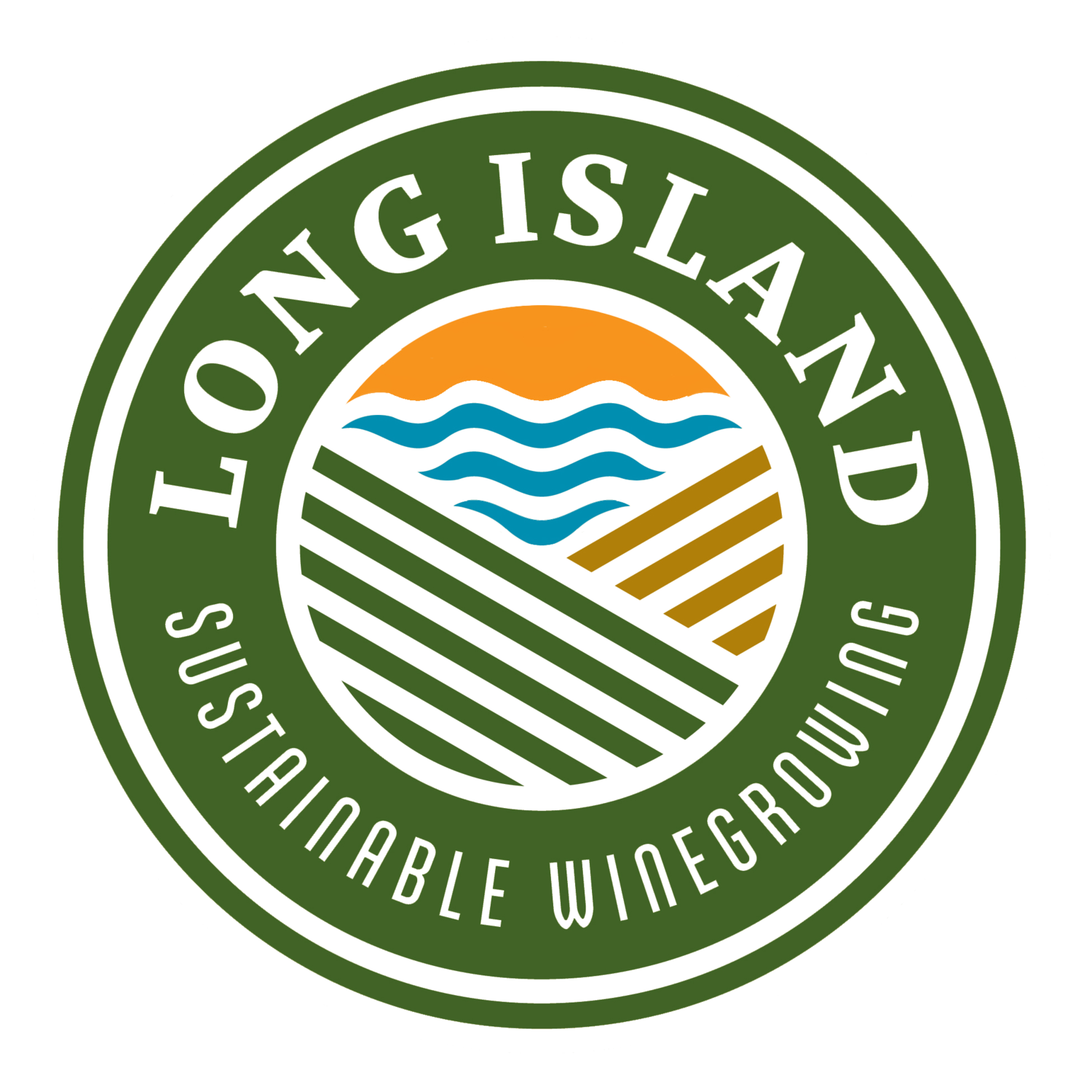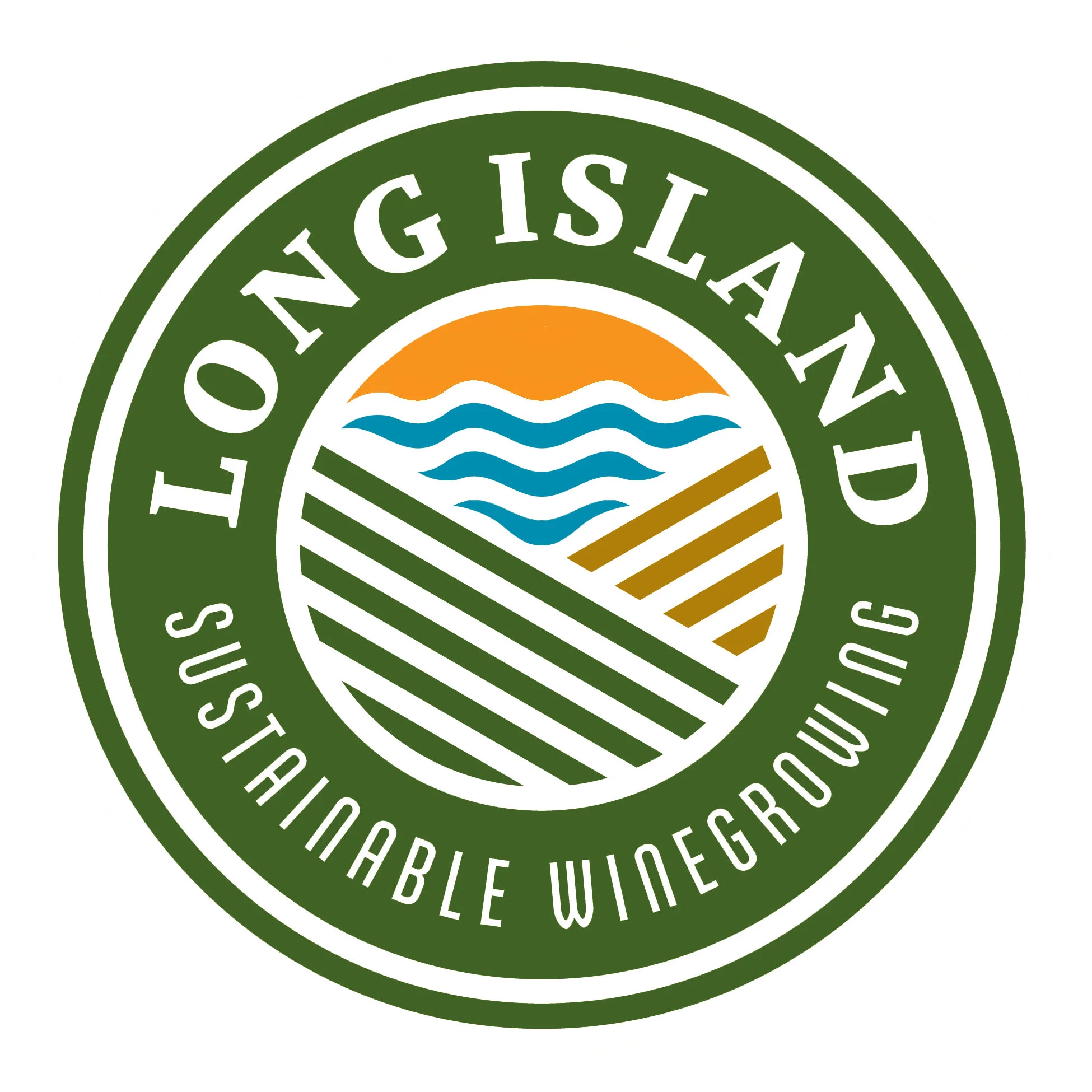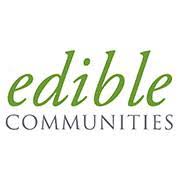“Will [climate change] be good for wine? That’s a real question,” she said. “Because we started much cooler than the West Coast, it’s [a warming climate] gotten us to the point where we’re producing better wine. It’s complicated. We know how to grow grapes much better than we used to. We have better rootstocks, disease control information is better. It’s a great confluence of events happening here now, and we’re capitalizing on that.”
Creating a Win-Win for Long Island Wine Grape Growers
Long Island Sustainable Winegrowers (LISW) program was established in 2012, by a group of growers banding together to provide leadership for sustainable growing practices on Long Island. The group believed that a certification standard would create a win-win opportunity for the industry. Eco-conscious consumers would be able to support participating vineyards and the industry would abide by consistent environmentally sound practices.
Long Island Sustainable Winegrowing: An organization providing stewardship for small farms in a maritime climate.
Long Island Sustainable Winegrowing is the first program of its kind on the Eastern seaboard. It provides a blueprint for engaging an independent community of small farmers in a challenging growing region where rain falls frequently while the grapes are on the vine. Today, more than 50% of Long Island’s vineyards are part of the program.
Long Island Sustainable Wine Guide
Winemaker Rich Olsen-Harbich of Bedell Cellars Talks Petit Verdot and Long Island Wine
New York Wine & Grape Foundation Funds Long Island Sustainable Winegrowing Course For Wine Industry Professionals
The New York Wine & Grape Foundation today announces the launch of the first Long Island Sustainable Winegrowing (LISW) online training program, the Sustainable Wine Professional Course. As only sustainable certification program for winegrowers in the Eastern United States, the new online curriculum is part of a stakeholder engagement initiative to inform and certify winery tasting room and hospitality staff.
Field Notes: Charles Massoud on Sustainable Viticulture
If the vines must be treated with pesticides, we want to use the least toxic pesticides. This is because we live on our farm and I do not want my family and especially my grandchildren to be exposed to unnecessary toxicity. Because we also have workers who work in the vineyards and because we have neighbors who border our vineyards. We want the least toxic pesticides whether they are considered "conventional" or " organic".















